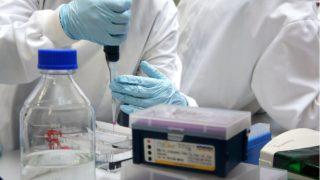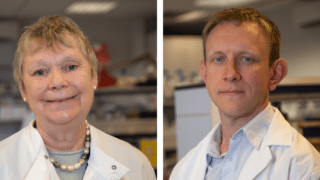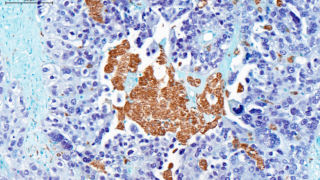Category: Publications
Search News
Categories
Archives
Study identifies biomarker that could help to diagnose pancreatic cancer
29th June 2021
Researchers from Barts Cancer Institute, Queen Mary University of London, have identified a protein that could be used to aid in the diagnosis of pancreatic cancer. Findings from the new study suggest that a protein called pentraxin 3 may be a specific diagnostic biomarker – or biological measure – for pancreatic cancer, with the ability to differentiate pancreatic cancer from other non-cancerous conditions of the pancreas.
Read moreStudy suggests blood test could guide precision treatment in bladder cancer
16th June 2021
A blood test that can detect tiny amounts of circulating cancer DNA may be able to identify risk of cancer recurrence and guide precision treatment in bladder cancer following surgery, according to a clinical study led by Professor Tom Powles from Barts Cancer Institute at Queen Mary University of London and Barts Health NHS Trust. The findings from the study, published today in Nature, may change our understanding of cancer care following surgery.
Read moreBuilding a human tumour microenvironment in the lab
15th June 2021
Researchers from Barts Cancer Institute at Queen Mary University of London, led by Professor Fran Balkwill and Dr Oliver Pearce, have built two 3D multi-cellular models of the human tumour microenvironment (TME) in ovarian cancer. The models, which are the first created from the CanBuild project, have revealed novel insights into the role of the TME in cancer progression.
Read moreScreening for ovarian cancer did not reduce deaths
13th May 2021
A large-scale randomised trial of annual screening for ovarian cancer did not succeed in reducing deaths from the disease, despite one of the screening methods tested detecting cancers earlier, according to results published in The Lancet.
Read moreImpact of COVID-19 in patients with HBP conditions in East London
12th May 2021
Researchers from Barts Cancer Institute at Queen Mary University of London have conducted a population-based study to explore the risk factors associated with COVID-19 susceptibility and survival in patients with a history of diseases of the liver, pancreas or biliary system – also known as hepato-pancreato-biliary (HPB) diseases – in East London.
Read moreImpact of chemotherapy on immune cells in the TME
10th April 2021
Research from Barts Cancer Institute, Queen Mary University of London, has revealed novel insights into the effects of chemotherapy on the tumour microenvironment (TME). The study found that chemotherapy enhances the anti-tumour actions of immune cells within the TME and their ability to support immune responses against cancer.
Read more





